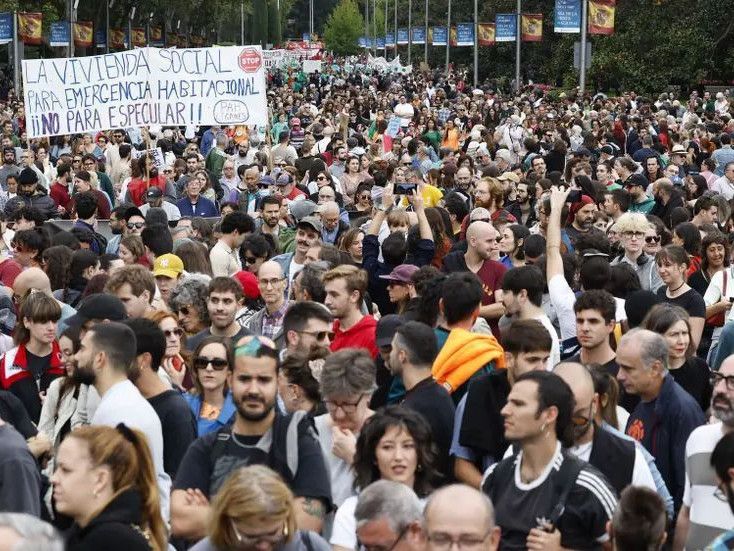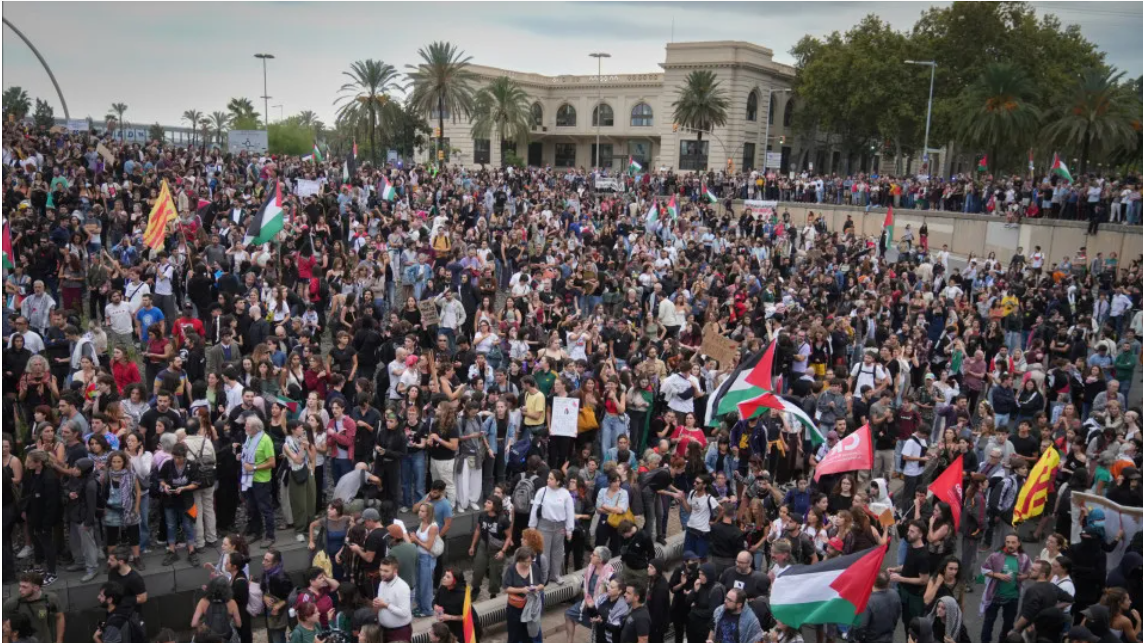“You cannot live as a tenant and you cannot become a homeowner,” Luis Ripley, a 25-year-old psychologist who joined one of the most popular demonstrations in Madrid, told Lusa.
According to the organisers, 150,000 people took part in the Madrid protest, while the Government Delegation (the body that authorises demonstrations and determines security arrangements) said there were 15,000 demonstrators.
Luis Ripley shares a similar story to the thousands of people who took part in the Madrid protest: he is from Andalusia, in the south of Spain, "where there is no work", so he moved to the capital, where he earns a salary that only allows him to rent a room in the suburbs, the price of which has gone from 200 euros before the pandemic to 500 today.
"Living alone in Madrid is impossible. You do not have the salary to rent on your own and you cannot buy a house either, not least because it is impossible to save for a down payment. It is a vicious circle," he said, unable to answer the question of how he envisages his future.
Luis Ripley attributes the increase in house prices in recent years in Madrid to phenomena such as tourism, with owners preferring local accommodation, or the purchase of houses by real estate funds, without any control or intervention in the market by governments “of all colours”.
The Madrid demonstration left from the Atocha roundabout and ended in Plaza de España, marching through the city’s major streets and avenues with a banner reading “Let’s put an end to the housing business”.
The same associations were behind demonstrations that mobilised hundreds of thousands of people last autumn in Spanish cities where access to housing is particularly affected by tourism, such as in the south of the country, Barcelona or the Canary and Balearic archipelagos.
The Madrid demonstration also heard calls for the occupation of “empty bank houses” and cries of “one eviction, another occupation”.
According to a 2023 report by the non-governmental organisation (NGO) Provivienda, 5.6 million families in Spain (29.5%) “suffer from residential exclusion” and it is estimated that 12.4% live at risk of falling into the same situation.
The Observatory of Decent Housing, run by the ESADE business school in Barcelona, pointed out in a recent report that the United Nations special rapporteur on the right to housing wrote in 2006 that Spain’s situation was the “most serious in Europe and one of the worst in the world”.
















